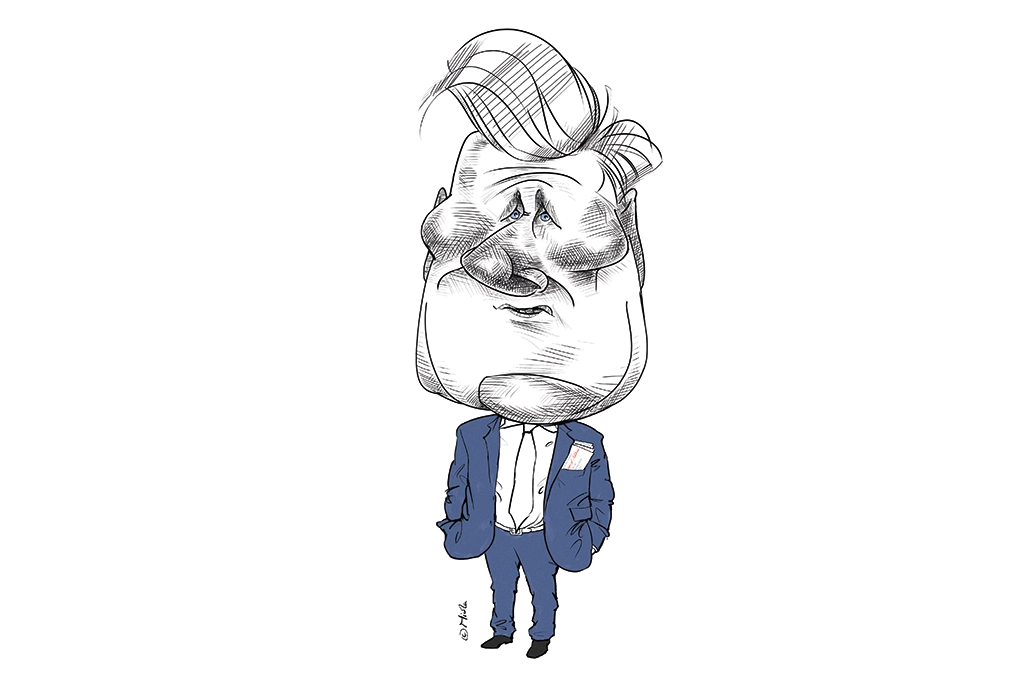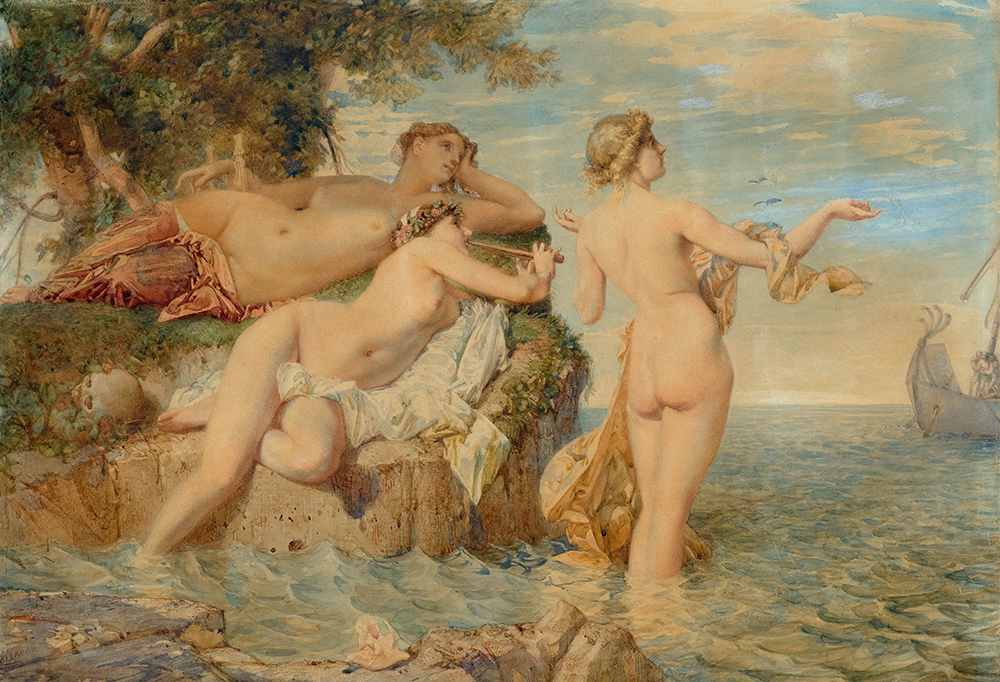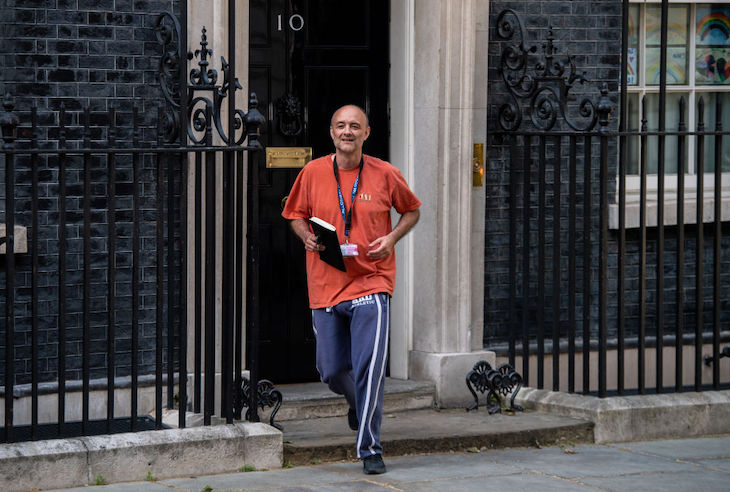When Keir Starmer won the Labour leadership in 2020, following the party’s worst UK election defeat since 1935, many people shook him by the hand, said “good luck” and then added darkly “you’re not going to do it in five years.” Just three years later, he has done “it,” to the extent that Labour is twenty points ahead in the polls. The insult the Conservatives leveled at him when he became opposition leader — that he was boring – now looks like an advantage when it is offset by Tory psycho-drama. Starmer clearly thinks things are going his way.
Actually, things aren’t going his way when we meet, because his train is delayed. He is trying to go to Slough to campaign, but all the trains out of London Paddington are either running behind or canceled. It’s not a strike day, which helps the Labour attack line that Britain is falling apart because of the Conservative government, not strikes. He waits on the platform with Rachel Reeves, his shadow chancellor, with whom he has just returned from the World Economic Forum in Davos.
His Slough visit, no less cold nor indeed less glamorous than Davos, is to Octopus Energy, a company Starmer and Reeves admire. It is a bizarre backdrop for a photocall: Starmer, a rather gray figure, ends up standing in front of hundreds of hot pink fluffy octopus toys which are scattered around the warehouse. One extra large octopus perches behind him on a copper boiler pipe while he does broadcast interviews. To greet Reeves and Starmer, Octopus Energy placed a framed picture of the two of them on the coffee table in a model home. The pair are amused, but also pleased with the idea that Labour and business are now so close.
This coziness — Reeves claims to have met 320 chief executives in the past year — is Starmer’s first big interesting shift in Labour policy. “All the work I’ve done with businesses is not just: let’s look back to what it was like just before 1997 and go through the same motions,” he says. “It is actually a grown-up question of how to harness the private sector, alongside the public sector, as we go forward.”
It’s too early to say whether there is such a thing as “Starmerism,” but he’s keen to outline what seems to be updated Blairism: harmony between state and private, a desire for companies to succeed to generate the tax needed for the public sector. There are, he says, three options open to any new Labour administration. “We as an incoming government could say: ‘Look, we won the election, we’ve set out our stall, it’s down to us to deliver it. We’ll suck everything up, we’ll nationalize everything from Whitehall.’ But we’re not going to do that, we’re very clear.”
The second option, he says, is laissez-faire: “To say: ‘We’ve won the election but the market knows best so we’ll sit back now.’ We’re not going to do that.” The third option is a “true partnership” between the public and private sectors, which is “why the stuff we were doing at Davos is really important… we are going to be working with businesses, we are going to be working with CEOs. I want to make sure that, if and when we win that election, we hit the ground running, so I don’t want to have the conversations then that I can have now.”

His words are striking, because Labour spent a decade under Ed Miliband and Jeremy Corbyn labeling businesses as “predators.” So what about health businesses? Might he be as warm on the private sector as the New Labour grandee Alan Milburn, who famously said that “the relationship between the NHS and the private sector is not a one-night stand, it is a long-term relationship?” Starmer doesn’t bite, preferring to stick to the more anodyne “partnership.” “Why wouldn’t we partner with some of those businesses that are leading innovation and change? What they want most is certainty, stability and to know what the strategic approach is over a five-year period.”
Starmer seems content for his approach, rather than his language, to get attention. And he has got a lot of attention for his enthusiasm that private clinics should be used to help clear the National Health Service backlog (there were 7.2 million people on waiting lists at the last count). He says he has “nothing against” people using private healthcare, adding: “What I want to see under a Labour government is a situation where it doesn’t matter whether you choose to go private or to use the NHS, because the quality of the care you’re getting is pretty much the same.” At the moment, he admits, “it’s nothing like that — the NHS is on its face.” To get the health service back on its feet, a Labour government will need to reform social care. But not even Starmer will commit to full reform in the first term of a government. “We’ll have to take it step by step, but it starts with the workforce.”
All of this is rather different to the Keir Starmer who in the Labour leadership election pledged to end outsourcing in the NHS and abolish university tuition fees. Why has he changed his mind? He gives a not particularly convincing spiel about Covid and the economic disaster of the Liz Truss government. “Everyone adapts to the circumstances as they find them,” he says. He’s not bothered by his Labour critics either. “Those who complain most are generally not those who ever supported me in the first place,” he chuckles.
However, he often tries to balance policies that will annoy the left-wingers in his party with ideas to appease them elsewhere, such as the plan to strip private schools of their charitable status (thereby upping fees by 20 percent by adding value-added tax).
“I recognize that many families save good and hard in order to be able to send their child to a private school,” he says. “I absolutely get that sense of aspiration. But I wouldn’t say the aspiration isn’t there in every working-class family who can’t afford private school. I want them to have the same life chances.” This, he says, can only happen with more spending, which can come when private school fees are taxed.
But if Labour instructs schools to act as profit-seeking companies, not as charities, does Starmer (who was state-school educated) worry that this might affect bursaries or sponsorship of other state schools? “I don’t think it should be for private schools to try to create a sort of trickle-down to state schools,” he says.
Starmer was named “politician of the year” at our Parliamentarian Awards in November. Collecting his award, he said that the only favorable comment that The Spectator had ever published about him was Rod Liddle saying that has made “a decent fist of leading his rabble.” When he got home, he was feeling pleased with his victory until his teenage son, who was still up watching TV, asked him what the award was that he was clutching. “He takes it from me, has it a look at it, and passes it back: ‘How did you blag that, then?’”
Starmer doesn’t talk much about his children. He doesn’t name them or allow them to be photographed, and he worries about what life might be like for them behind the iron gates of Downing Street. He also frets about the popular influences on them — he understands why teenage boys find Andrew Tate so compelling, for instance. “He’s filling a gap in the most awful way,” he says. “It is quite hard for boys and young men at the moment… I can see, with a teenage son, that there are pressures that bear on a teenage boy, which will get even more intense as time goes by. Then Tate comes in with his toxic views and feeds directly into that.”
Labour has its own fights about misogyny. The Member of Parliament Rosie Duffield, a survivor of domestic abuse and outspoken critic of gender self-ID, has said being in the Labour Party is like being in an “abusive relationship” and attacked Starmer’s “silence” on the harassment she has received from male party colleagues. “I’ve met Rosie a number of times and talked to her,” he says (though she has denied this). “I want her treated with respect and with tolerance and I’ll do everything I can to make sure that she is.”
Would that involve speaking up for her? “In terms of respect and tolerance, yes, of course.” It’s not just Duffield, though. He is now having to decide his party’s position on Nicola Sturgeon’s Gender Recognition Reform Bill — which Labour Members of the Scottish Parliament supported. It seems that Starmer was not fully engaged with the problems with that legislation as it progressed through Holyrood. When I ask if he and Labour’s Scottish leader, Anas Sarwar, talked about the decision to whip MSPs in favor of the bill, he replied: “Our offices did, of course, but subsequently it has now become a UK-wide issue, not just a Scottish Parliament issue. So it’s for the Labour Party, under my leadership, to take the key decisions as we go forward from there.”
Right now, with the media still focusing so much on Tory woes, not many voters are following the positions Starmer and Labour take on various policies. That will change as the election draws near. The Tories were twenty points behind under John Major in 1990 but went on to win the general election two years later. Is he worried now?
“I am concerned about complacency,” he says. “In the end we have — I think and I hope — put the Labour Party in a position where we are, very clearly, about country first and party second. That’s the first time that’s happened for a long time. But we haven’t won anything yet.”
This article was originally published in The Spectator’s UK magazine. Subscribe to the World edition here.

























